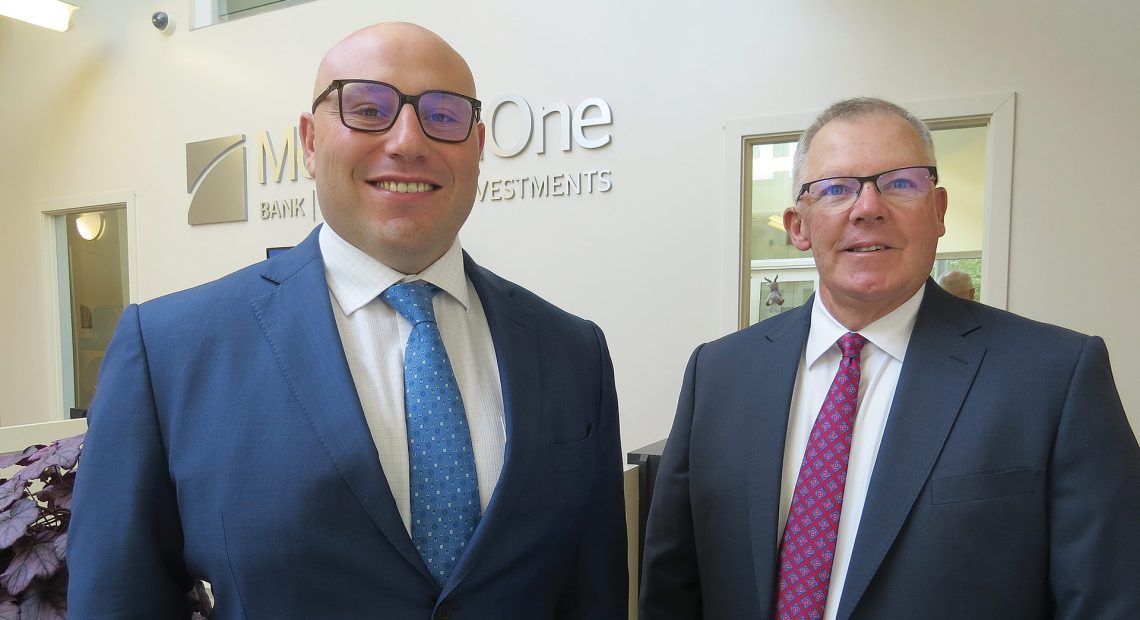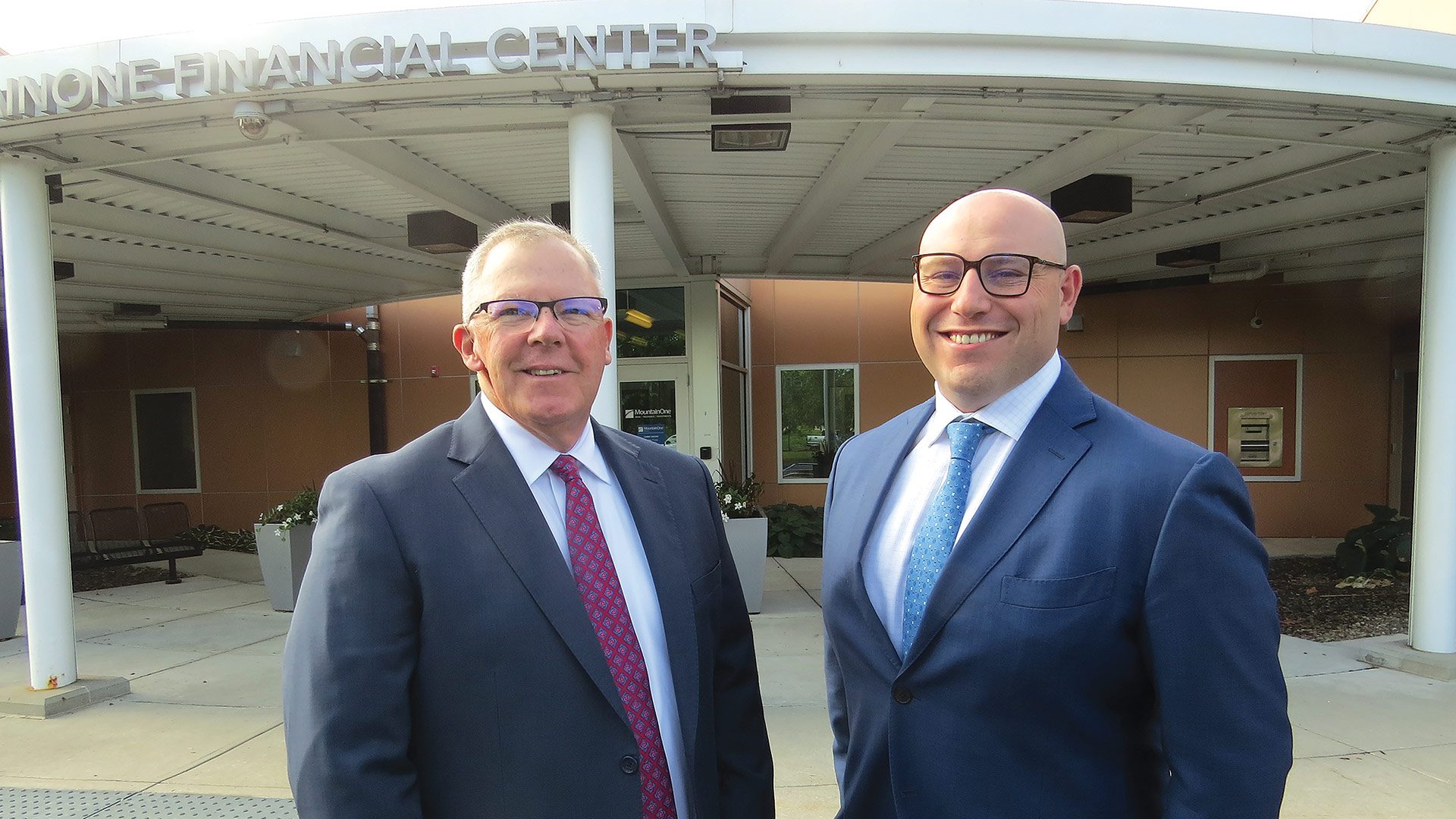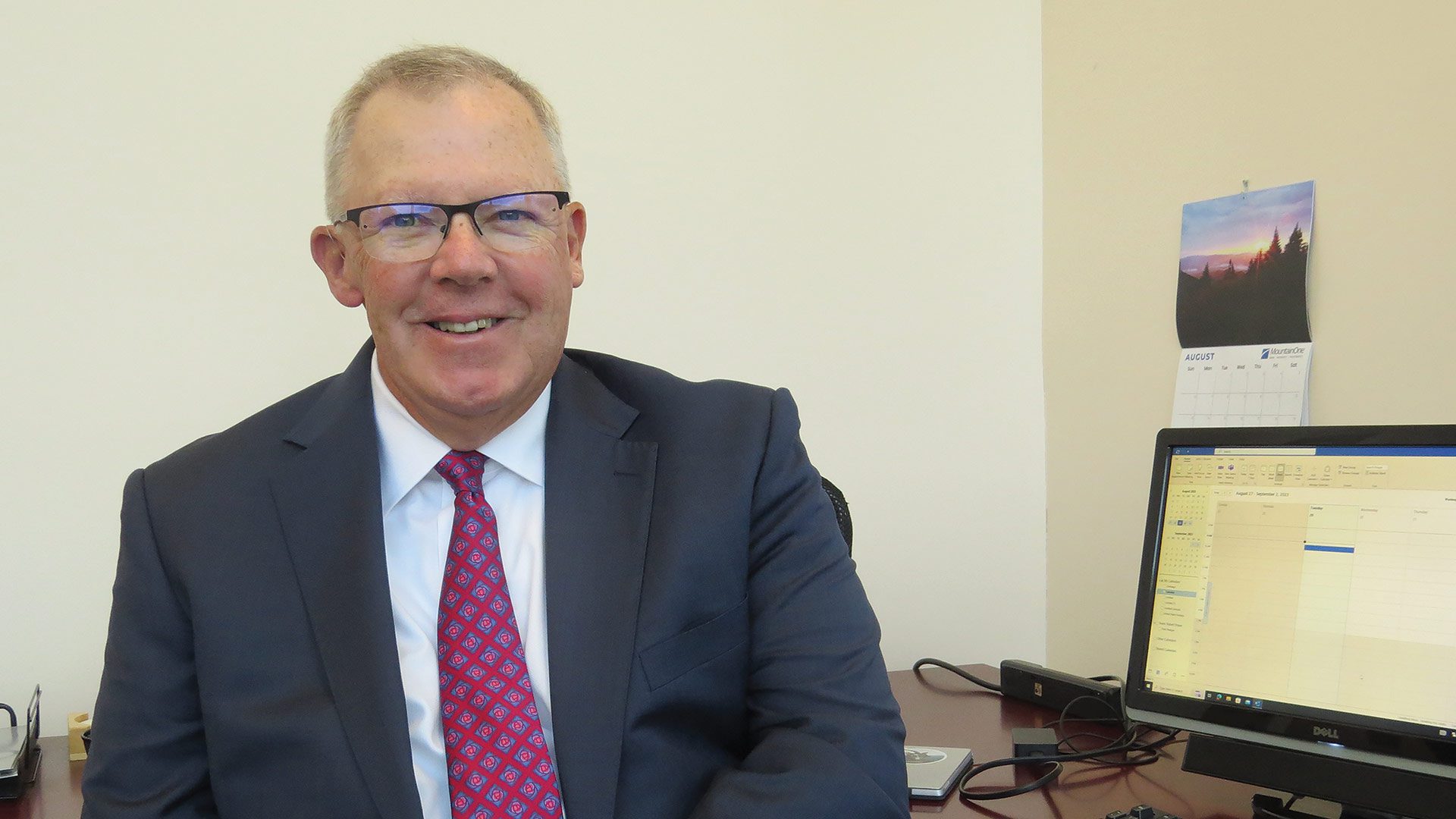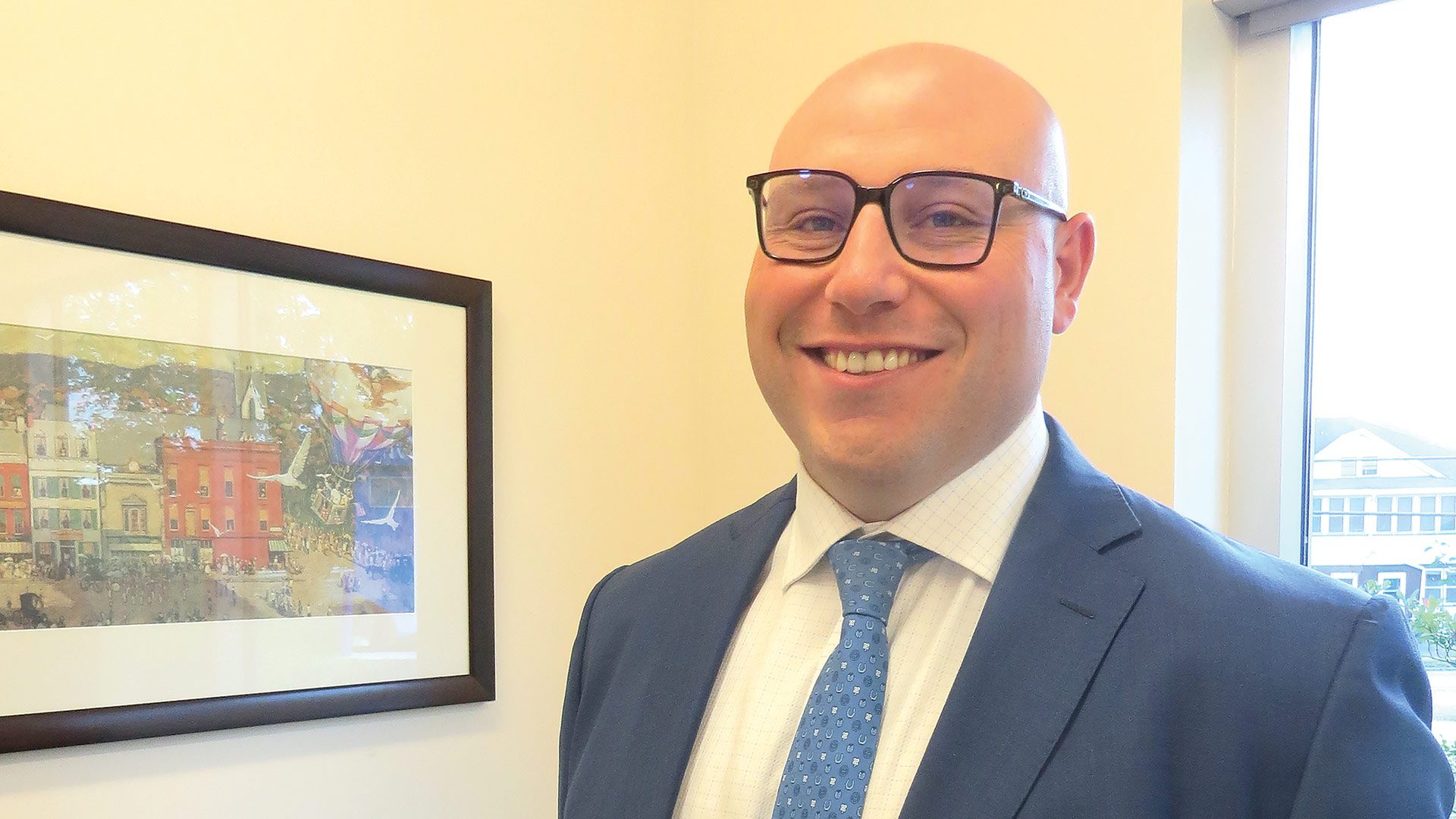Branching Out — Again

Matt Sosik says Hometown’s latest acquisition is part of an ongoing initiative to gain needed size and extend the institution’s footprint.
Matt Sosik referred to it as a “mutual admiration society.”
That’s how he chose to describe the respect that he developed for the manner in which Kevin Tierney had grown North Shore Bank into a force in that region of the Commonwealth and, likewise, how Tierney respected what Sosik had done with Easthampton-based Hometown Financial Group, using acquisition and organic growth to transform it into a $4.7 billion multi-bank holding company with a reach that extends across Western and Central Mass., the South Shore, and into Northeastern Conn.
This mutual admiration eventually became the catalyst for talks to bring the institutions together, said Sosik, chairman and CEO of Hometown Financial, adding that North Shore will become part of the Hometown family of banks through a merger of Abington Bank, acquired by Hometown in 2019, into North Shore.
The combined bank will have more than $3 billion in assets and 25 full-service retail locations across the Bay State’s North and South Shore regions and Southern New Hampshire. Meanwhile, Hometown will become, with more than $6 billion in assets, one of the largest mutual banks in the country, said Sosik, adding that the merger gives the group more of what banks need in this challenging day and age — size.
“Margins have been falling steadily, and the only way to beat that back and try to win that battle is drive down costs, at least on the average.”
Indeed, when asked what greater size — $6.4 billion in assets compared to $4.7 billion — provides, Sosik started by saying simply, “survival.”
“Margins have been falling steadily, and the only way to beat that back and try to win that battle is drive down costs, at least on the average,” he explained. “So scale is the way to achieve that; when you put more assets under one roof and achieve more efficiencies, you’re driving down per-asset costs, and that’s what this business model tries to attain.
“We want to use that $6.5 billion chassis that’s headquartered in Easthampton to run the back offices of all of our three subsidiary banks,” he went on, listing bankESB, bankHometown in Central Mass., and the soon-to-be-much-larger North Shore Bank. “We can liberate those banks to do what they do best, which is use the power of their local brand in their communities they’re serving and let the shared service model of the holding company do the grungy stuff to produce efficiencies.”
That business model he mentioned has been an aggressive course of acquisitions that makes sense on every level, but especially those involving new opportunities for achieving growth and diversity when it comes to markets and regional vibrancy.
For this issue and its focus on banking & financial services, we take an in-depth look at the latest of these acquisitions for Hometown Financial and what it means for the institution moving forward.
Another Transaction of Note
As he talked about Hometown’s latest expansion effort, Sosik broke it down into two parts, essentially.
The first is the merger of North Shore into Hometown Financial Group, and then the merger of two of its subsidiary banks, North Shore and Abington, under the North Shore banner — although the Abington name will live on.
Putting those two institutions together under one roof, if you will, gives Hometown a dynamic presence in the eastern part of the state, which, like Western Mass. — and all corners of the state, for that matter — is a highly competitive region charactized by a strong mix of local, regional, and national banks, Sosik said.
Elaborating, he noted that the joining of Abington and North Shore brings a number of benefits, everything from resolution of succession issues at Abington — long-time President and CEO Andrew Raczka is entering retirement — to needed size and scale for North Shore.
“For North Shore, this makes a lot of sense strategically because they’re going to expand their footprint around Boston, gain market share … all the important things,” Sosik told BusinessWest. “But they’re also sliding underneath this $6.5 million company. They’re going to get to run their bank, and yet they can have their cake and eat it too in the sense that they’ll have access to our shared services and gain the efficiences of a much larger company. The benefits are the same for us — ensuring long-term viability and relevance in a very slim-margin industry.”
Rewinding the tape, Sosik said the talks between him and Tierney began just over a year ago and accelerated over the past few months. The merger was announced early last month, and the transaction is anticipated to close in the second half of this year.
It is the latest of seven strategic mergers for Hometown Financial Group over the past nine years, an aggressive pattern of acquisition that has taken the institition well beyond the 413. Indeed, its reach now extends across most of the state into neighboring Connecticut and New Hampshire.
Recounting those acquisitions, Sosik said they started in June 2015, when Citizens National Bancorp and its subsidiary, Citizens National Bank, merged into bankESB, which was operating at the time under the name Easthampton Savings Bank. In April 2016, Hometown Community Bancorp and its subsidiary, Hometown Community Bank, joined Hometown Financial Group to become the second subsidiary of the holding company; Hometown Community Bank has since changed its name to bankHometown. And in January 2019, Pilgrim Bancorp and its subsidiary, Pilgrim Bank, joined Hometown Financial Group.
Later that year, Abington Bank merged into Pilgrim Bank, with the name of the combined bank changed to Abington Bank, and Millbury Savings Bank merged into bankHometown. In October 2022, Randolph Bancorp and its subsidiary, Envision Bank, merged into Abington Bank, and last month, North Shore Bancorp and its subsidiary, North Shore Bank, announced plans to merge with Abington Bank; at transaction closing, Abington Bank will operate as a division of North Shore Bank.
Moves of Interest
This latest merger transforms North Shore into a $3.1 billion powerhouse, one of the largest mutuals in that part of the state, with reach across Eastern Mass., where, again, there are many competitors, size is an all-important asset, and meaningful, organic growth is far more attainable than it is Western Mass., which is typically described as a slow- or no-growth area.
“It’s a very competitive market, but also a very vibrant market,” said Sosik. “When you look at our demographics in the Pioneer Valley, they’re not very impressive; we love that market, and it’s very stable, but it’s not high-growth.
“It’s different in the eastern part of the state,” he went on. “In spite of the depth of the competition, it’s still a great market to be in; there are opportunites for growth.”
From a bigger-picture perspective, this latest merger provides an opportunity to take the stability of Western Mass. and juxtapose it against the “higher highs and lower lows” that define the far more dynamic eastern part of the state, he continued, adding that this diversity of regions and markets is another solid asset for Hometown Financial Group.
It’s an asset most other banks in the region are seeking as well, he said, noting that several banks in Western Mass. are pushing into Connecticut and other regions, and some Connecticut-based banks are moving north.
It’s all a function of gaining access to higher-growth areas and, overall, much-needed size, said Sosik, as he returned once again to the topics of margins — and how they became even smaller in the wake of repeated interest-rate hikes last year — and scale and the importance of attaining it.
“Banks are not built to withstand that kind of pressure,” he said in reference to climbing deposit rates and an inability to increase yields on existing loan portfolios beyond a certain point. “So you’re seeing banks in various degrees of duress becase of that predicament.”
The pace of interest-rate increases has certainly slowed, and rates may even decline somewhat this year, but this will remain a challenging climate for banks of all sizes, he went on, adding that the only course of action is to achieve greater size.
“In a low-margin business of any kind, and banking is certainly right at the top of that list, you have got to grow, or you’re going backward,” he went on. “That’s the nature of the beast. How do you acomplish that growth? We’ve chosen one model, and there are other successful pathways.”
Thus far, this model has chosen to be successful at achieving its various goals — from territorial expansion and regional diversity to much-needed scale.
And Sosik expects this pattern to continue with the acquisition of North Shore Bank.











